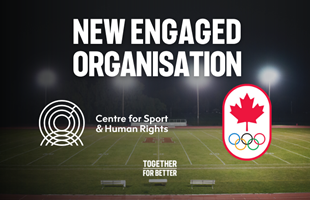The impact of sport mega-events on the quality of life for host city residents: reflections on the 2010 FIFA World Cup
15 Aug 2014
Author - Knott, B; Swart, K; Visser, S

Abstract
Sport is widely believed to have a positive impact on quality of life. Sport events are perceived as elements of a city's destination attractiveness for tourists and residents. However, socio-cultural impact studies of sporting mega-events, although limited, indicate that there may be a variety of positive as well as negative impacts for the quality of life for residents of a sport mega-event host city. However, within the developing nation, and African context specifically, studies have not clearly indicated the quality of life impact of these events. Within South Africa, the impact of the 1995 Rugby World Cup demonstrated that sport mega-events can fuel positive quality aspects such as social cohesion and nation-building. A study was designed to assess these impacts on 2010 FIFA World Cup host residents living in the suburb of Green Point, that surrounds the Cape Town stadium. The impact was assessed by comparing the responses of residents before, during and after the event, using a spatially-based, stratified random sampling method. The results revealed a shift in perception amongst the host residents comparing pre-and post-event responses. The anticipated negative quality of life indicators such as crime, traffic, noise and social pollution, reduced significantly. During the tournament, respondents also showed high levels of national pride and patriotism for their country. The paper concludes that a sport mega-event may deliver fewer negative quality of life impacts than anticipated, as well as supporting broader quality indicators such as social cohesion and civic pride, although acknowledging that these may be short-term in nature. The paper therefore encourages longitudinal research in order to measure the long-term quality of life legacy on host residents. The paper also highlights pertinent conclusions relevant to the future hosting of sport mega-events in Africa, as well as lessons for other host nations.



